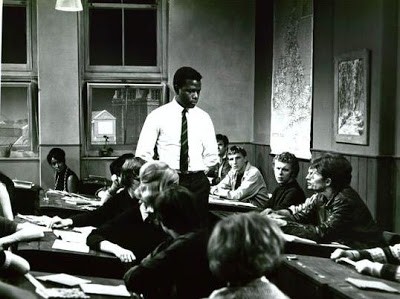When you remember your school and college days, what do you recall the most? I am sure you must be remembering some of those great teachers for their delightful classes, some for their sense of humor, and some for their craft, for their methodology of teaching and for their compassion and many more virtues of theirs.
Can we forget names of our teachers, can we forget their personalities? No, we cannot for a simple fact that they are an element of our life like our parents and siblings are. I think we all literally characterize the subjects with some good teachers we had; Maths, Language, History, Geography, Science, Civics, Drawing, Craft, Physical Training – all of these and many more in later years. A competent teacher has the enc hantment – he/she can make the class fall in love with a subject. What students take away from a school/college usually centers on teachers who can instill passion and inspiration for the subjects! It’s difficult to measure success, and in the world of academia, educators are magicians who continually find new methods, new techniques, of re-evaluating how to quantify learning.
hantment – he/she can make the class fall in love with a subject. What students take away from a school/college usually centers on teachers who can instill passion and inspiration for the subjects! It’s difficult to measure success, and in the world of academia, educators are magicians who continually find new methods, new techniques, of re-evaluating how to quantify learning.
Teaching as a process is so interwoven and complex, that it is difficult to be explained. It has three important sources. First and foremost, each subject taught is as large and complex as life, therefore the familiarity of the subject is always flawed and partial. No matter how a teacher devotes himself/herself to reading and research, teaching requires a command of content that always evades some student’s grasp. Second, the students themselves are larger than life and even more complex. To understand them, their capacity as learners and their queries and respond to them wisely in the moment, requires a fusion of Einstein, Freud and Edison! A teacher achieves this with lots of hard work. Let’s not undermine their commitment and their craft; like we mature as students they also mature as teachers. They need time. It takes few years for them to grasp the teaching-learning process and techniques.
 Third, if students and subjects account for all the complexities of teaching, the teachers have to literally be on their toes to keep up with the class which often consists of some bright, extraordinary, some average and some laggards. Isn’t it challenging for a teacher to keep pace with variety of students? Some are mischievous, some are feeble, some are fighters, and some are sensitive – the teacher knows it all. He/she learns enough techniques to stay ahead of the student psyche. But there is another reason for these complexities – friends they teach us the way they are. After all, they are not robots, they are human like us. Like all of us even they have their whims and fancies.
Third, if students and subjects account for all the complexities of teaching, the teachers have to literally be on their toes to keep up with the class which often consists of some bright, extraordinary, some average and some laggards. Isn’t it challenging for a teacher to keep pace with variety of students? Some are mischievous, some are feeble, some are fighters, and some are sensitive – the teacher knows it all. He/she learns enough techniques to stay ahead of the student psyche. But there is another reason for these complexities – friends they teach us the way they are. After all, they are not robots, they are human like us. Like all of us even they have their whims and fancies.
 Teaching is a truly human activity. Everybody cannot teach; it emerges from one’s inwardness, for better or worse. In my opinion a teacher projects his/her inner personality, their soul onto their students. In their interaction with the class which is usually very short in schools (a class is conducted for 30-45 minutes) they mold the young and supple hearts. They try to correct the thinking of the children, their character, their spirit and their disposition as citizen of a nation. The teachers give the world entrepreneurs, doctors, lawyers, and chartered accountants, CEOs, Prime Ministers and Presidents! They grow with their students.
Teaching is a truly human activity. Everybody cannot teach; it emerges from one’s inwardness, for better or worse. In my opinion a teacher projects his/her inner personality, their soul onto their students. In their interaction with the class which is usually very short in schools (a class is conducted for 30-45 minutes) they mold the young and supple hearts. They try to correct the thinking of the children, their character, their spirit and their disposition as citizen of a nation. The teachers give the world entrepreneurs, doctors, lawyers, and chartered accountants, CEOs, Prime Ministers and Presidents! They grow with their students.
Successful teachers have clear objectives. They have a sense of purpose; they see a big picture because they have a full class before them. Every child is unique, the teacher looks at the topic from every child’s point of view. A teacher who doesn’t listen to students fails and one who always listens to students will ultimately fail. It is no simple endeavor to know when to listen and when not to listen. Unconstructive energy zaps creativity and it makes a nice breeding ground for fear of failure. Good teachers have an upbeat mood, a sense of vitality and energy; they see past passing setbacks to the end goal. Positivity breeds creativity. Remember, they always want their students to succeed.
Humor and wit enlightens the class; it reduces stress and frustration, and gives students a chance to look at their circumstances from another point of view. All of us remember humorous teachers don’t we?
In order to avoid becoming the stuck and stubborn teacher, good educators take time to reflect on their methods, their delivery, and the way they connect with their students. Reflection is necessary to resolve some awkward issues in class rooms. Good teachers always give emotional support to their students. They understand that learning does not happen in a vacuum. Depression, anxiety, and mental stress have a severe impact on the educational process. A good teacher takes the whole person into account. When a child is suffering trauma in his life, the teacher reaches out with all might. And that’s a true teacher.
Friends, teacher’s job are not an easy job. Most often their roles are undermined by cruel world. Their vacations, their pay scales are always discussed without understanding their responsibility –all of these ignorant and annoying comments just go to show that people who aren’t in education simply can’t understand all of the work that goes into being a classroom teacher. Teaching is simultaneously instilling in a child the belief that he can accomplish anything he wants while reprimanding him for producing shoddy work.
 I can’t resist giving example of an ever beautifully made movie on teachers “To Sir with Love” in 1967 which stars Sidney Poitier as Mark Thackeray, an engineer who takes a temporary teaching job. The kids are rough, arrogant and uninterested in school, and ignorant to the possibility that they could become more than they are. The gentlemanly Mr. Thackeray, called “Sir” by his students, is as much a culture shock to them as they are to him.
I can’t resist giving example of an ever beautifully made movie on teachers “To Sir with Love” in 1967 which stars Sidney Poitier as Mark Thackeray, an engineer who takes a temporary teaching job. The kids are rough, arrogant and uninterested in school, and ignorant to the possibility that they could become more than they are. The gentlemanly Mr. Thackeray, called “Sir” by his students, is as much a culture shock to them as they are to him.
To Sir, with Love is like a time capsule of the late 1960s: Sentimental optimism contrasts with the grittiness of poverty, illiteracy, teenage rebellion, and rapid social change. There is a sense that Mr. Thackeray’s class is staggering wildly toward dead-end or delinquent adulthood, and he has a few short weeks to reach at least some of his students before they are lost. His greatest asset as a teacher, though, has nothing to do with cutting-edge curriculum or teaching “best practices.”
It is culture. “Sir” is a living example of another world which his students could choose to enter, if only they could see themselves in it. Through him they experience, for the first time, what i t is to have dignity. As the teenagers begin to awaken to their own self-worth, they start to grasp why people have manners, respect others, and behave in ways that draw respect in turn. They take interest in the written word and the process of intellectual inquiry. This movie shows how education is more than transmission of facts; it’s an invitation to explore the world of the soul, of human creative capacity, and of the physical universe. It shows when the right adult (teacher) comes in a misguided teenager’s life at the right time how things fall in the right place. Please do watch this movie to understand a teacher.
t is to have dignity. As the teenagers begin to awaken to their own self-worth, they start to grasp why people have manners, respect others, and behave in ways that draw respect in turn. They take interest in the written word and the process of intellectual inquiry. This movie shows how education is more than transmission of facts; it’s an invitation to explore the world of the soul, of human creative capacity, and of the physical universe. It shows when the right adult (teacher) comes in a misguided teenager’s life at the right time how things fall in the right place. Please do watch this movie to understand a teacher.
Today I salute my all teachers from the core of my heart; for they made me what I am today. I am indebted to all of them. They truly have transformed my life.












































